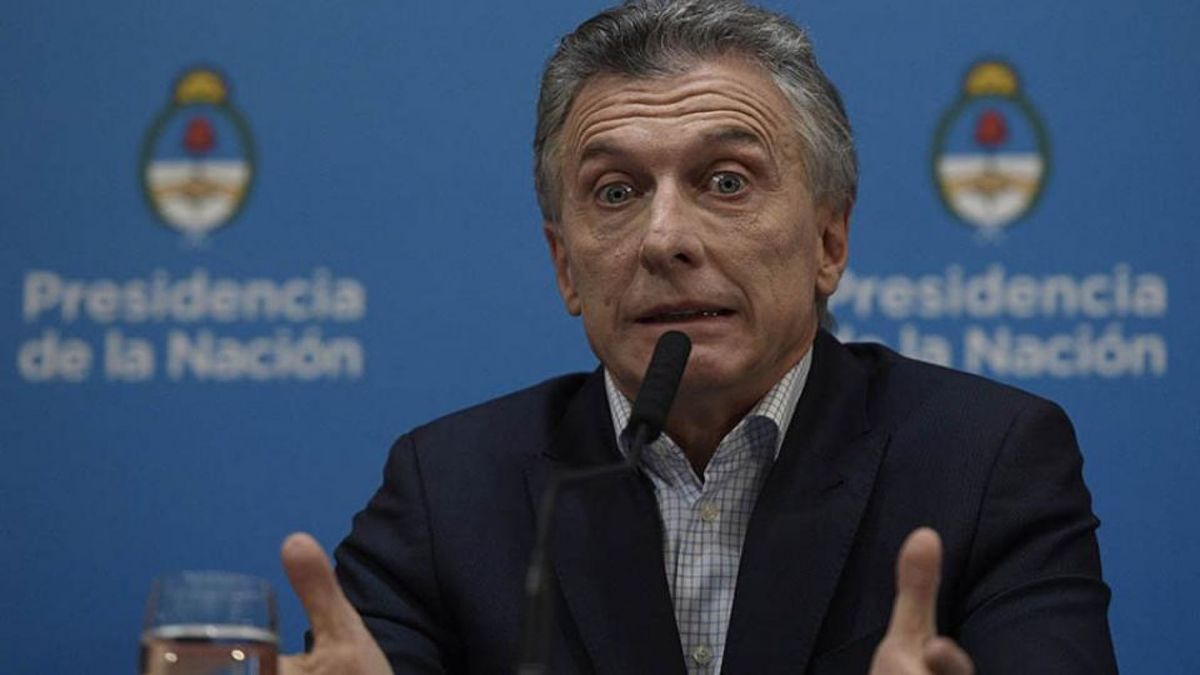The default declared during the government of Mauricio Macri, according to S&P Global Ratings said on August 29, downgraded Argentina’s sovereign credit ratings to “selective breach”after the government unilaterally extended the maturity of its short-term debt, a move the ratings agency considered a default. It was the agency’s second downgrade in two weeks.. On August 16, 2019, it cut Argentina’s long-term foreign and local currency sovereign credit ratings to B- from B, with a negative outlook, while affirming the short-term ratings at B.…” “debt dynamics have been greatly stressed amid a depreciation of the exchange rate, a probable acceleration of inflation and a deepening economic recession”. “Also on August 29, the agency downgraded Argentina’s long-term and short-term issue ratings to CCC-/D from B-/B due to increased default risk.”. https://www.spglobal.com/marketintelligence/en/news-insights/trending/ud9ylveeocnu03bpquzewq2 .
The new government of Alberto Fernández approached the negotiation with the bondholders in a different way than usual. Since there would be no primary surplus in the coming years, since they were not planning to finish off the failing economic activity that it had inherited, the government’s debt proposal would be a reasonable proposal that would make the debt sustainable. The work was faced inversely to the neoliberal logic applied in all debt restructurings, where first it is calculated what primary fiscal surplus effort must be made to make that debt sustainable, and then the needs of the real economy and the citizenship. The external and local lobby was pushing an agreement with the IMF that would make it possible to extend the payments of the debt with the organism to contribute to increase the degree of acceptance of the bondholders and to corset the Government.
The Government faced an extravagant number of debt maturities in pesos in the coming months, between March and June it had to make payments for $586 billion, which represented 32% of the monetary base. The idea of ”together for hate” was that in just 4 months everything would explode and the new government would fail.
In February 2020, financing in pesos in the local market was scarce. In addition, future maturities in pesos coincided with a possible increase in uncertainty due to the tightening of negotiations with external creditors, misinformed by local macro-ecologists, and ill-accustomed to the Messi of finance who did not negotiate anything. They spent their time taking credits so expensive that in the negotiation Martin Guzmán managed to lower US$37,000 million So that it is understood, they had paid US$37,000 million more in interest.
The real people responsible for the tragedy said that an agreement would not be reached with the international law bondholders and that they would have to choose, in the face of each debt in pesos, between issuing to cancel their commitments or selectively defaulting like Macri-Lacunza.
THEY LIT CANDLES SO THAT THE RESTRUCTURING WOULD GO WRONG
They wanted the debt relief to fail or, that the required adherence would not be achieved and that Argentina would end up in default, on the debt issued under international law. In a scenario of these characteristics, everything would explode as planned, and the financial results would become social outbreaks.
The Argentine economy came with the selective default (S&P) of Macri, going through a very fragile moment before the Coronavirus. The government had launched a target program to address the macrist emergency. The program had a supreme purpose, which consisted of stopping the fall in consumption and the level of activity, because a poverty of 40% that Macri left behind could not be sustained. Also, he intended to moderate the inflation rate that Macri brought to more than double that of Cristina Kirchner and restructure the public debt in an orderly manner so as not to “leap into the void.” Macri left the country and the debt on the brink of the abyss.
The macroeconomic program could not continue with the austericidal policy, but rather had to create fiscal space, by raising tax collection and debt restructuring, for that it was necessary to increase public spending and stimulate aggregate demand. Clearing the pressure of the primary fiscal surplus until 2026 and with a very low stock of reserves, the BCRA still had to buy the supply of dollars to accumulate reserves and be able to raise the crashed country that Macri left behind.
The BCRA promoted an expansive monetary policy, with a rapid drop in interest rates and greater monetary expansion, injecting liquidity and trying to boost credit to the private sector. While the exchange policy would be a managed float.
THE PANDEMIC
The truth is that even before the pandemic, Macri had implemented a more expansive fiscal policy because it did not reach December. Assuming that the debt was restructured and default was avoided, with the statistical carryover of the drop in GDP left by Macri, before the pandemic a drop in GDP of (-2%) was estimated in 2020 and an inflation rate of 60%. % annual. It was only 42% in 2020 and 50.9% in 2021 (below Macri 2019). Remember that Macri left with more than 54%.
With a vulnerable macroeconomy and a different program, the scenario had extraordinary risks if the debt was not restructured. If the BCRA issued excessively, the primary fiscal deficit would increase more than forecast. But in addition to the catastrophe that Mauricio Macri had left behind, Alberto Fernández had to face an unprecedented external shock that shook the planet.
The pandemic whiplash coexisted with the ravages left by the Together for Change epidemic. The external demand for Argentine products decreased, the Brazilian economy entered a recession, the international price of soybeans fell, the Argentine peso lost competitiveness against the devalued currencies of the region. In such a shaken world where the priorities were saving lives, debt restructuring was complicated and the risk of a delayed negotiation could eventually lead to default.
The exogenous shock was added to the endogenous shock, the isolation that would affect demand, production and, eventually, employment. Not only foreign trade would feel the impact; transport, tourism, commerce, services and entertainment.
Faced with this scenario, the world reacted quickly by stepping on the accelerator of public spending and accelerating the pace of monetary expansion. The Argentine problem was that the post-Macri era lacked the “manual” mechanisms that are used to make countercyclical policies, because they had all been spent in 4 years.
With a collection in free fall, plus the essential and unforeseen increase in health spending, minimum retirements, AUH, family allowances, salary payments, it was estimated that the primary deficit in 2020 could skyrocket, although it did not.
The BCRA accelerated the rate of expansion of the monetary base, from March 1 to the 31st of the month, the monetary base increased $496 billion, mainly due to the start of the disarmament process of the Leliq that Macrilandia had left behind. The partial renewal of Leliq’s maturities implied a monetary expansion of $312 billion. During this period, the objective was for the banking system to have funds to grant credit to the private sector, including a new line for SMEs at 24% per year. In addition, the BCRA transferred $172 billion to the Treasury, with which it had transferred $629 million to the treasury since November Macrista. Out of prudence, there was no monetary expansion of exchange origin in March to buy dollars.
The way to behave and express yourself with measure and sobriety, without falling into excesses, but always sensibly and sanity in 2020; It came to contrast with the audacity that had governed us since fiction 2015-2019. The permanent financial and exchange crises since 2018 had exacerbated inequalities and destroyed a good part of the middle class by 2015, endangering social mobility and the aspirations for a better life of those who had returned to the poverty zone.
Director of the Hope Foundation. https://fundacionesperanza.com.ar/ Graduate Professor UBA and Masters in private universities. Master in International Economic Policy, Doctor in Political Science, author of 6 books
Source: Ambito
David William is a talented author who has made a name for himself in the world of writing. He is a professional author who writes on a wide range of topics, from general interest to opinion news. David is currently working as a writer at 24 hours worlds where he brings his unique perspective and in-depth research to his articles, making them both informative and engaging.




